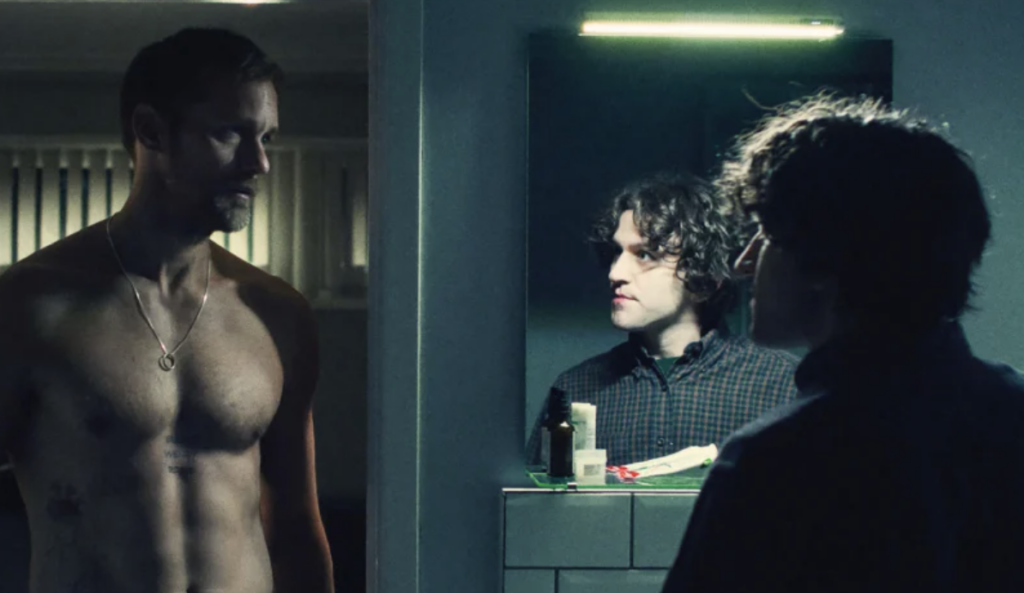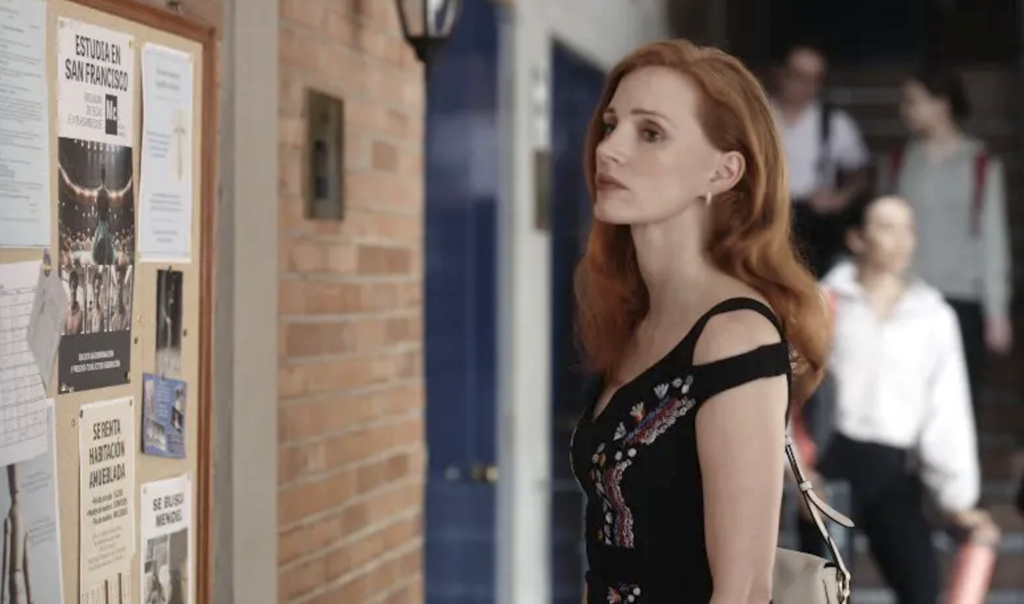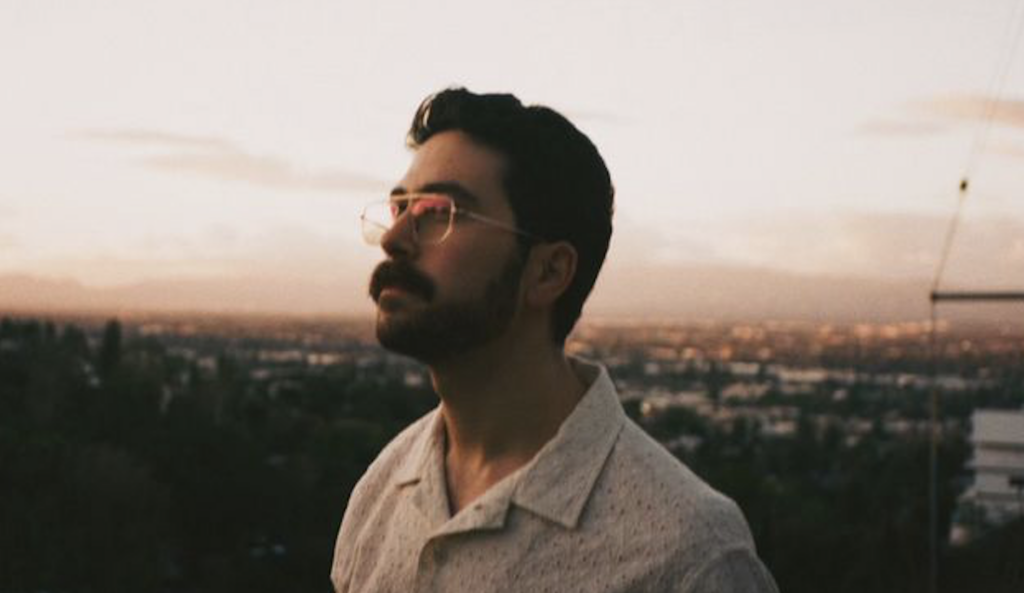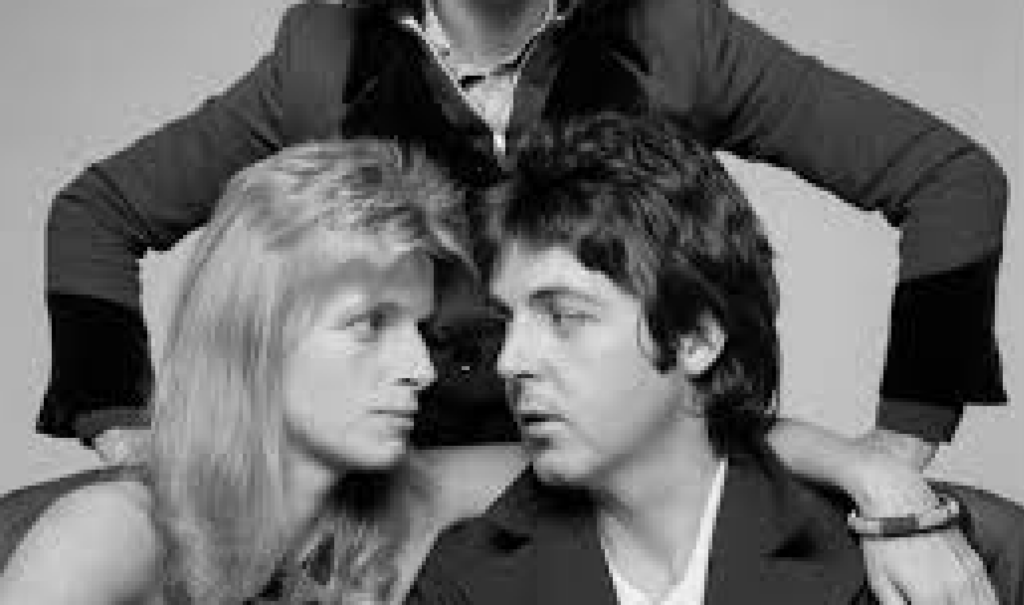Vera Drew’s The People’s Joker is a transgressive Gotham City parody that redefines mixed media
It’s been a long time since I saw a movie so transgressive that it felt like a crime to be watching it—a genuine sense of danger from sharing a space with a piece of media. That this film would be a Batman parody, a poignant journey of self-discovery, a rejection of the comedy-industrial complex, and edging the boundaries of legality in its mere existence… yeah, y’know, that all checks out.
The People’s Joker by director/writer/editor/star Vera Drew starts hitting theaters across the country this weekend. Its journey achieved online attention when it premiered at the 2022 Toronto International Film Festival, despite the sudden interjection of Warner Brothers. The partially crowd-funded feature was born of a joke between friends over re-editing Todd Phillips’ 2019 film Joker and spiraled into a sprawling project that no one could have seen coming—including Drew herself.
A story of one comedian’s trans journey weaves within the moments of a hyper-stylized reimagining of Gotham City and the entire Batman universe—especially its rogue’s gallery. Drew plays a stand-up comedian who refuses to fall into the UCB-centric world of Gotham, and our hero begins building her platform with similar outsiders. One central character’s journey twists into a rebellion of normalcy and structural control at every level.

Courtesy Exile PR
Built from live-action footage, animation, and unhinged amounts of mixed media, the entire production carries a handmade quality that is equally abrasive to the senses and welcoming to the spirit of rebellion. Saying it is a “passion project” would be an understatement. No matter how many others appear on screen or do work on the production side, each frame, each sound, and every choice drips in the humanity of Vera Drew.
For a film that, to the outsider, desecrates so much of one of the most well-protected IPs on the planet, it almost assuredly should not exist—especially in distribution that will screen it in major movie houses across the continent. That the viewer is shoved face-first into a parallel dimension that destabilizes an entire media architecture would also be its own feat. That it winds up bringing every outsider that watches it into one of the most personal, autobiographical conquest of the human condition is the truly unfathomable turn.
Anyone can make fun of Batman. Only Vera Drew can abscond with his universe to make it all about her. What could be more Jokerfied than stealing the caped crusader’s existence? Heisting his entire identity to forge your own?
The film plays in KC at Screenland Armour from April 19 – April 25, 2024. Tickets are available here. Ahead of The People reclaiming chaos on screens across the county, The Pitch hopped on a call with Drew to discuss their origins in the Tim & Eric universe, gambling on yourself, and the unnatural sensation of the world cheering you on.
The Pitch: How did this project start for you?
Vera Drew: It was towards the end of 2019. I wasn’t really writing a script; I was just working on various pieces of unconnected ideas. I had something that was a concept about body horror with a trans element, centered around a drag queen who gets physically addicted to irony. I had been working in alternative comedy for about ten years at that point, mainly as an editor. I also got to direct and produce, but I was reaching a point where I needed to make something of my own—to tell my story. And to own that. Comedy is great but the comedy scene is at worst a boy’s club, and at best a boy’s club made up of supportive older brother types, who don’t really get it. They don’t have the best spaces for exploring queer identity and gender stuff. But I’d take that material to those stages in a sort of ironic way, but that trapped me in cycles of painful shit. So I wanted to make a work about that and that’s where this germ of an idea came into play.
What was the trickiest editing gig you wound up on? I know Tim and Eric universe stuff has a lot of base material that must be shaped into something coherent in the editing bay. How’d you get your footing there, and what did you learn from the process?
My story is similar to a lot of people, in that I was a fan of Tim & Eric and a fan of experimental film in general. I was obsessed with this couple of creators that managed to find a mainstream-adjacent version of that. I grew up on public access and quote-unquote outsider art—late-night television, experimental aesthetics, and stoner comedy. I started doing sketch and improv when I was literally 13 years old. I don’t recommend doing that—kids: don’t do that, it leads to terrible places. But it did give me an extra appreciation for the power of video art in transgressive spaces.
I was about to graduate from film school, and I had aspirations of moving to LA, so on a whim, I reached out to Tim & Eric’s Absolutely Productions and just asked if there was an internship available. They said yes. They had a couple of shows in production, including Nathan For You. I watched the pilot on the first day of my internship. That was a moment comparable to discovering fire. At the time they were also working on season one of The Eric Andre Show and season one of Comedy Bang Bang. I came into this space at this perfect time when everything was exploding; the needs across these shows meant that one day, I’d be holding a camera; one day, I’d be picking up chai tea; the next day, I’d be getting release forms signed for Eric Andre segments. It was a crash course in film production. Who gets an opportunity like that?
I started to ask about moving into a space on the post-production side, where I could start doing some of the hands-on editing and crafting of these shows, because post was the secret sauce to everything they were doing here. That spot opened up for me almost immediately. You could play with genre and aesthetics and be fully weird without worrying about who was watching it. There was a lot of material in the T&E universe where you’d have a lot of footage to work with, and then the prompt of “How do we fit this into an 11-minute format?” I got to learn a craft and really refine my skills here in what was, again, a dream situation for me—not just for the style of comedy but actually in Hollywood, in a place that paid money, and for a show that was seen by a relatively substantial international audience. Other editors in this team wound up becoming directors or writers on different ,ptenrojects, so I had good role models with paths to track almost out of the gate.
https://twitter.com/letterboxd/status/1776292348114436351
This is all funny because you asked me about what the most challenging thing was to edit, but the truth is that the most complex stuff is easily my favorite work. When John C. Reilly would come in for Dr. Steve Brule segments… I wish that could be my full-time job. Those were three hour days on sets, because John doesn’t like to shoot that much, and then post was just a playground of VHS gltiches and insanity.
When I branched outside of that world, I realized I might not be a great gun-for-hire elsewhere in the industry. I got a job on an ABC Freeform show that was an absolute nightmare. I wouldn’t say I liked the leads, the people there were abusive—it was a tough one. But each step of the way, I was still amazed that I’d made it this far. I’m a weird little freak from the Midwest, and now I work every day on the CBS Radford lot?
The honest answer on my most challenging gig was working for Sacha Baron Cohen on Who is America? It wasn’t mean-spirited; he’s just a meticulous mastermind who is very specific about what he wants and has a lot of rules around editing and what you can/can’t do. A note I would always get on that show is “You’re doing too many jokes at once.” I was told that he didn’t want this visual joke happening on top of someone saying a joke and I would be beating my head against a wall because to me, of course, you can do multiple jokes at once.
That’s a lot of what I needed to do with The People’s Joker. I wanted to break every single rule that I’d been fenced in by, especially this idea that you couldn’t layer jokes. I tried to load every single frame of this movie with as many jokes as I possibly could. It would either become completely unwatchable or would be wildly rewarding that each rewatch you could find something new. Of course, that runs the risk of creating a film abrasively unwatchable born of severe mental illness, but wouldn’t you prefer seeing that over being spoon-fed?
What level of UCB did you complete before you bailed?
Three or four. I literally had a teacher who was like “You’re so funny, you’re such a great improv person, but also I don’t think you’re a good fit here.” There’s a reason I made UCB into a cult in this movie. There are many weird buzzwords and an industry built around it with natural paths and endpoints and unspoken promises in exchange for taking your money. I knew I didn’t belong in that. I didn’t want to wind up on Saturday Night Live someday, as it was like a dream job.
There are a lot of people who paid a lot of money to learn Zip Zap Zop and never be funny.
So, on the production side of this, you started filming in 2019. And then the pandemic hits; how did that affect your process? Or was doing this fully green screen was it sort of, like, everyone’s got a lot of free time now?
When the pandemic started, I was flat broke. 2020 was supposed to be the year my career took off. I was going to be an episodic director on a big show, but I’d also come out of the closet the year before, which put a damper on that. Not to play the victim card, but fuck, it’s hard even to be a cis woman director in episodic TV. So when the world shut down, I didn’t know what to do. No one was going to pay me to add fart sound effects to weird experimental shit.
This all sort of happened when Todd Phillips was in the press complaining about woke culture around his film Joker. He was doing that classic, “It’s so hard to be funny now when you’re a man and people insist on using gender-neutral pronouns or whatever.”
My eventual co-writer on the film, Bree, told me the only way she’d see that movie was if I re-edited it for her. That’s where this got started. Pretty soon after chopping it into pieces, I began in earnest to build a real mixed media story on the foundations of that bizarre edit. It was becoming akin to an Everything Is Terrible movie, or more of a video essay. Then I added sounds and backstories and started to care about these characters. I’m a lifelong Batman and comics fan, and it wasn’t wrong to ask “What is stopping me from doing my own version of all this? What if I folded it into a different universe and just went wild?” That’s how you wind up with something that dunks on Batman as this fat cop and it feels like Natural Born Killers and it’s all this big trip with fight scenes—approximating that feeling of just flipping through channels way too late at night. But between those broadcasts, there’s a narrative that burns into your retinas. That’s how this started to take shape.
At some point I cashed in every favor I had with friends that were animators or puppet makers or whathaveyou, and then I took it to the internet to say “Hey, I’m making a Batman parody with my gay friends. Does anyone feel like helping out with this?” I just thought a few people would be interested and I severely undercounted who would be up for this.
What was the moment where this shifted from “I’m making this as a goof for my friends” to “Oh no, this is going to be seen by people!” When did this go from hard drive project to “This will be seen in theaters and uh… I guess we have some legal hurdles there.”
I didn’t realize the shift happened until I was talking to someone else about this, but I think it was the night I was leaving for TIFF. The movie was showing and I needed to take a ride-share to take off for the premiere and I was still changing things in VFX. I didn’t even watch it through before I took it to the theater. That was sort of the moment this went from something living on my hard drive to screening in front of so many people, so it became hard to put that back in the bottle.
I don’t remember most of 2022. I was micro-dosing shrooms constantly, trying to finish this fucking movie. I took out a huge loan, which I don’t recommend doing, but I simply knew I needed to get this done. So I just worked as hard as I could, constantly, unrelentingly on this—and it never really stopped, and I wasn’t sure if or when I would be done.
So yeah, suddenly you’re at TIFF and you’re on an elevator with Werner Herzog and over there is Richard Roundtree and you have to accept that this is suddenly a big deal. We premiered there on the same day that The Whale premiered. That doesn’t make sense, right? This is when it really set in that this was no longer a little internet project for me and my friends. It’s been reported to death, but the night before the premiere TIFF got a letter from Warner Brothers saying they thought our film was “infringing on their brand”—it was not a cease and desist as some people have called it. But TIFF stood by our side and said they were going to screen it, and was very much of the opinion that if you waited until the night before the premiere, this wasn’t a serious complaint that shouldn’t be taken seriously. It’s hard to say this is infringing on their brand when, let’s be honest, they would never make a movie like this, on any level. That’s how I found myself in a room with 600 living breathing people laughing at my gigantic pile of jokes layered atop each other on the screen, and I was just bewildered. I’m some hayseed that landed in Oz.
It’s been really like transformative. Having a movie that means this much to so many people. Like, I never could have predicted that that would have happened to me on my first movie—especially like on a movie like this. How do you prepare for something you simply never believed was possible?
You did take on one of the most well protected IPs ever. And around the time of your premiere is when Batgirl gets deleted for tax purposes. Was there something there where you were like, “Oh, actually, I’m sort of taking up the Batman mantle because the people that own Batman would rather see nothing come out if they could avoid losing money? Did you feel like you were filling like a cosmic gap by releasing a Batman entry in the face of capitalism collapsing entertainment into a neutron star?
I genuinely love and see every Batman movie that comes out. I like them all. I haven’t seen the Robert Pattinson one yet, but I’m saving it for when I’m a little less, let’s say, “Batman’d out.” I like Warner Brothers movies, and most of my favorite films of all time have come from that studio. But I was always intent on making a film that was legally protected by US copyright law. I worked with lawyers from very early in the process to sus out what the boundaries of parody even were—those laws a vaguer than the definition of pornography, in a legal sense, so you almost have to take it to court just to figure out where they’ll set the limits of fair use. So I did my best to stay ahead of all of that, but this was all first and foremost in telling a personal story—my story—in a way that was sincere and unique.
The week before my film premiere, Batgirl got shelved at Warners, and there was a small moment of fear: “Oh, so there’s a new sheriff in town over there, and they’re making some interesting decisions?” But somewhere between them being busy elsewhere, me doing the work up front, and the pressure from audiences that wanted to see this feature—it all comes together in some strange chaos magic that has unleashed this on the world.
I had no idea what the end result would be, and just threw myself into it. I didn’t follow the rules. I learned from my mistakes. I just tried to tell the story that I knew only I could, and told it at all costs.
The film plays in KC at Screenland Armour from April 19 – April 25, 2024. Tickets are available here.






